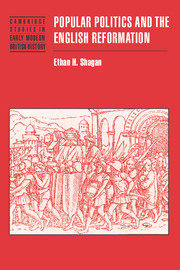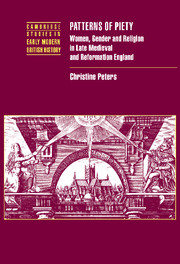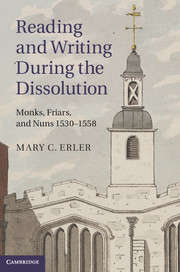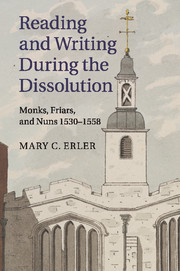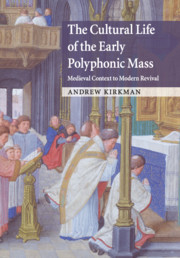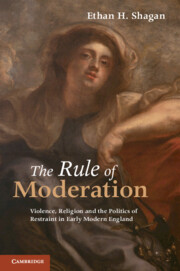Popular Politics and the English Reformation
This book is a study of popular responses to the English Reformation. It takes as its subject not the conversion of English subjects to a new religion but rather their political responses to a Reformation perceived as an act of state and hence, like all early modern acts of state, negotiated between government and people. These responses included not only resistance but also significant levels of accommodation, co-operation and collaboration as people attempted to co-opt state power for their own purposes. This study argues, then, that the English Reformation was not done to people, it was done with them in a dynamic process of engagement between government and people. As such, it answers the twenty-year-old scholarly dilemma of how the English Reformation could have succeeded despite the inherent conservatism of the English people, and it presents a genuinely post-revisionist account of one of the central events of English history.
- This book offers an interpretation of the Protestant Reformation in England
- It explores the origins of the Anglican Church and the abilities of ordinary people to shape their own experiences in the pre-modern world
- Analyses the interaction of religion and politics at a crucial moment in English history
Reviews & endorsements
'What impresses me especially about this work is the way it tackles the vast array of intractable and often obscure primary sources. Shagan has proved to have an extraordinary nose for investigation in manuscript material; he has come up with some gems of neglected sources and has exploited them to the full. He has also acquired a sense of context: that indispensable sense of the shape of the English landscape, and how one area relates to another. In sum, this study will become a central statement in our understanding of the English Reformation.' Diarmaid MacCulloch, University of Oxford
'This book deserves careful reading because it challenges many accepted views and offers us a new angle from which to understand these momentous changes in our island's history.' Contemporary Review
'Shagan has presented a refashioned study of the ever-engrossing interplay between the governed and the governors of the early English Reformation.' Susan Wabuda, H-Albion
'This is one of the most important books ever written in its field and a must-read for specialists and students alike.' History
'… an important book … consistently intriguing.' Journal of Ecclesiastical History
'Ethan Shagan's new study of the early years of the English Reformation is a tour de fource. What Popular Politics and the English Reformation attempts to do is to take on and defeat a number of the revisionist shibboleths that have become largely accepted within current historical thinking on the English Reformation. [This book] is an excellent volume, well written, polemical and persuasive - a real contribution to our understanding of the early English Reformation.' Reformation
'This is unusually interesting, clever and learned book. … He must be congratulated on uncovering so much exciting and complicated detail on the huge canvas of sixteenth-century English religion.' Recusant History
Product details
October 2002Paperback
9780521525558
364 pages
229 × 152 × 19 mm
0.49kg
Available
Table of Contents
- Acknowledgements
- List of abbreviations
- Note on the text
- Introduction
- Part I. The Break with Rome and the Crisis of Conservatism:
- 1. 'Schismatics be now plain heretics': debating the royal supremacy over the Church of England
- 2. The anatomy of opposition in early Reformation England: the case of Elizabeth Barton, the holy maid of Kent
- 3. Politics and the Pilgrimage of Grace revisited
- Part II. Points of Contact: The Henrician Reformation and the English People:
- 4. Anticlericalism, popular politics and the Henrician Reformation
- 5. Selling the sacred: Reformation and dissolution at the Abbey of Hailes
- 6. 'Open disputation was in alehouses': religious debate in the diocese of Canterbury, c. 1543
- Part III. Sites of Reformation: Collaboration and Popular Politics under Edward VI:
- 7. Resistance and collaboration in the dissolution of the chantries
- 8. The English people and the Edwardian Reformation
- Conclusion
- Bibliography
- Index.

